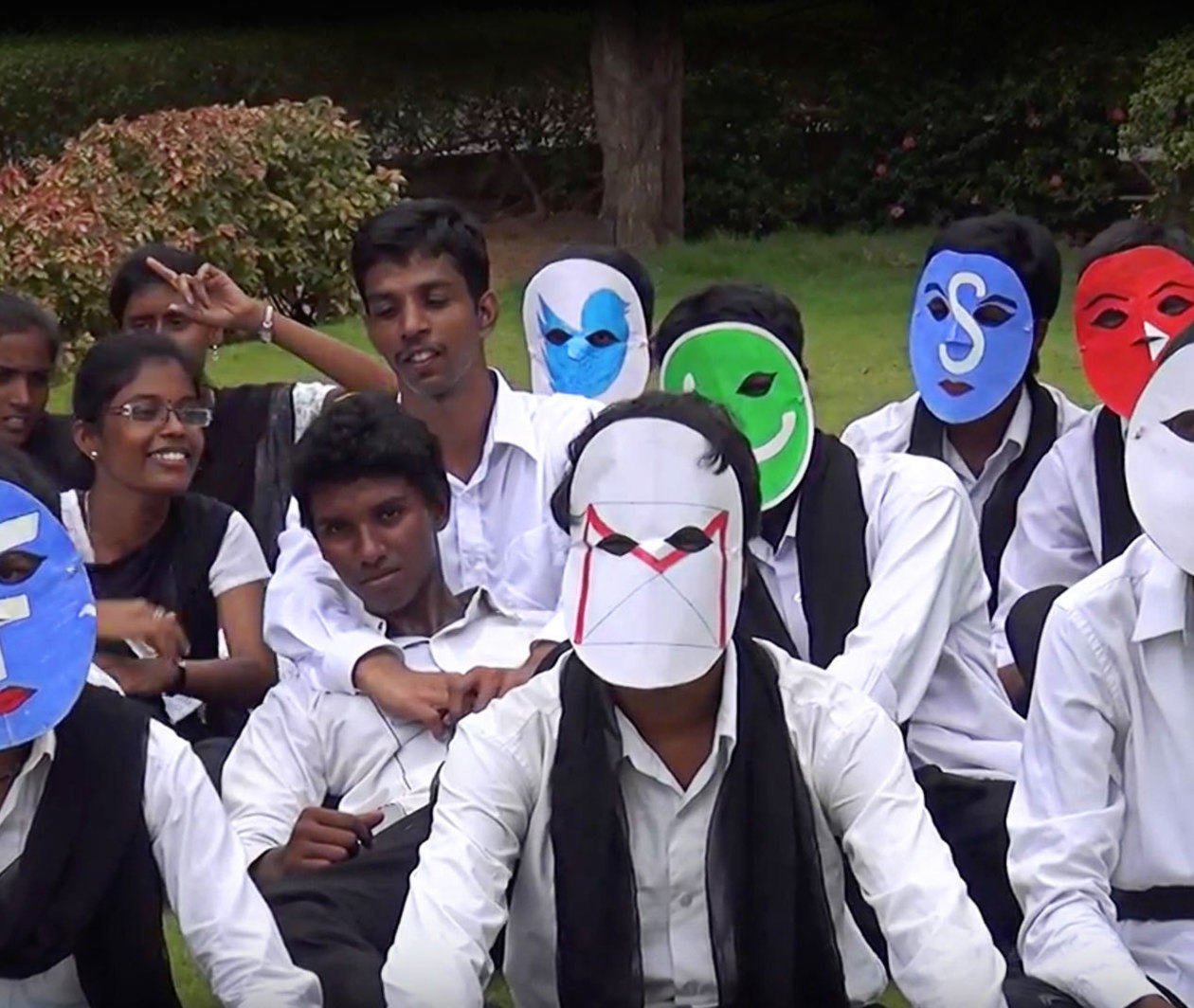Discover the varying uses of social media around the world and its consequences for politics, relationships and everyday life.

Duration
5 weeksWeekly study
3 hours
Why We Post: the Anthropology of Social Media
This free online course is based on the work of nine anthropologists who each spent 15 months in fieldsites in Brazil, Chile, industrial and rural China, England, India, Italy, Trinidad and Turkey.
What are the consequences of social media?
The course offers a new definition of social media which concentrates on the content posted, not just the capabilities of platforms. It examines the increasing importance of images in communication and the reasons why people post memes, selfies and photographs.
Over five weeks you will explore the impact of social media on a wide range of topics including politics, education, gender, commerce, privacy and equality. You will come to understand how the consequences of social media vary from region to region.
Take a comparative and anthropological approach to social media
The course will be taught by the same nine anthropologists who carried out the original fieldwork and who are publishing eleven books based on this research.
You will meet many of our informants through our films, engage with our team through video discussions and lectures, and encounter our ideas through animations, infographics and text.
Adopting an anthropological and comparative approach, we strive to understand not only how social media has changed the world, but how the world has changed social media.
To learn more about our research, see the Why We Post website or read our blog. If you have a question about the project, email whywepost@ucl.ac.uk.
Translations of this course can be found on UCLeXtend in the following languages: Chinese, Italian, Hindi, Portuguese, Spanish, Tamil and Turkish.
When would you like to start?
Start straight away and join a global classroom of learners. If the course hasn’t started yet you’ll see the future date listed below.
Available now
Learning on this course
On every step of the course you can meet other learners, share your ideas and join in with active discussions in the comments.
Who is the course for?
The only requirement is an interest in social media and people.
What do people say about this course?
"As previously, FutureLearn excel themselves with this great little course on social media. It is accessible, lucid and interesting. The course leaders walk you through the steps in a fluid fashion, checking for understanding before moving on to the next stage. There is a helpful use of multi-media resources, and quiz tests to enhance the learning experience. Highly recommended!"
"I have been delighted by how the course articulates one single message - each community adapts social media to their very own social needs. It uses different kinds of very short, impactful mini-lessons (videos, activities, questions, readings). I found it especially valuable how FutureLearn enables discussion among course participants in the online chat, and how teachers for this particular course contributed to it and moderated it. This has made the course eminently practical for me and helped me digest and embrace learnings. I have stayed in contact with a few fellow participants ever since, and even had a work exchange with one of the teachers."
Who will you learn with?
Daniel Miller is Professor of Anthropology at University College London. He developed the Digital Anthropology programme at UCL. @DannyAnth
Elisabetta Costa is a postdoctoral research fellow at the British Institute at Ankara. She is an anthropologist specialised in the study of media and digital media in Turkey and the Middle-East.
Vice Chancellor's Research Fellow at the Digital Ethnography Research Centre and the School of Media and Communications at the Royal Melbourne Institute of Technology, Australia.
i am currently finishing my phd in anthropology, studying social media.
I am a PhD researcher at UCL Anthropology studying smartphones and ageing in Japan, and a Leach fellow in public anthropology at the Royal Anthropological Institute.
www.twitter.com/LauraLHK
I am a postdoctoral researcher in anthropology
I am an Honorary Research Associate at the Department of Anthropology, UCL.
PhD scholar at the Dept. of Anthropology, University College London. Anthropologist/Statistician. Research Interests: Technologies in Workplace, Org Culture & Entrepreneurship. @venkatshriram
I'm an Assistant Professor at the Department of Sociology, The University of Hong Kong. Member of the UCL Why We Post team. http://twitter.com/AnthroTom | http://sociology.hku.hk/mcdonald
Postdoctoral Researcher at UCL. The author of 'Social Media in Industrial China' and co-author of 'How the World Changed Social Media'.
Learning on FutureLearn
Your learning, your rules
- Courses are split into weeks, activities, and steps to help you keep track of your learning
- Learn through a mix of bite-sized videos, long- and short-form articles, audio, and practical activities
- Stay motivated by using the Progress page to keep track of your step completion and assessment scores
Join a global classroom
- Experience the power of social learning, and get inspired by an international network of learners
- Share ideas with your peers and course educators on every step of the course
- Join the conversation by reading, @ing, liking, bookmarking, and replying to comments from others
Map your progress
- As you work through the course, use notifications and the Progress page to guide your learning
- Whenever you’re ready, mark each step as complete, you’re in control
Want to know more about learning on FutureLearn? Using FutureLearn
Learner reviews
Learner reviews cannot be loaded due to your cookie settings. Please and refresh the page to view this content.
Get a taste of this course
Find out what this course is like by previewing some of the course steps before you join:
Do you know someone who'd love this course? Tell them about it...
You can use the hashtag #whywepost to talk about this course on social media.
More courses you might like
Learners who joined this course have also enjoyed these courses.
Browse more in Politics & Society and Business & Management
